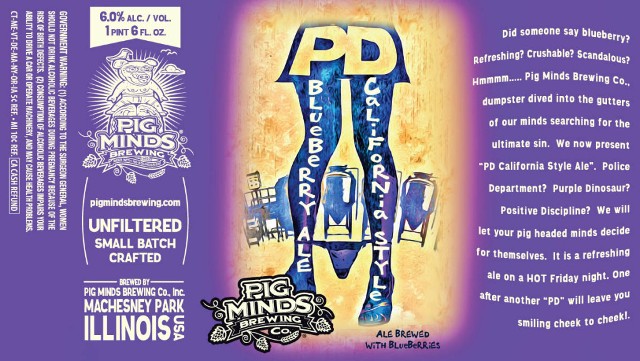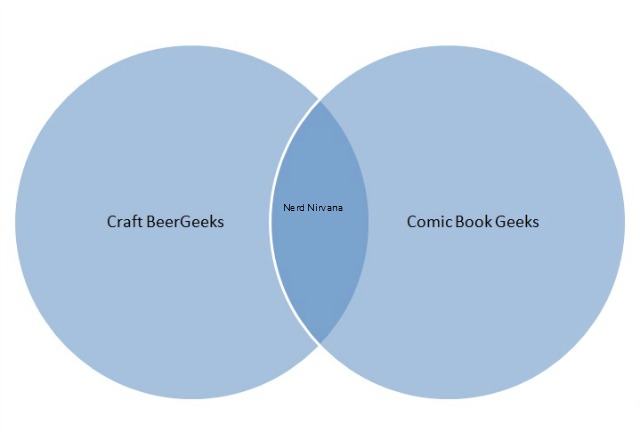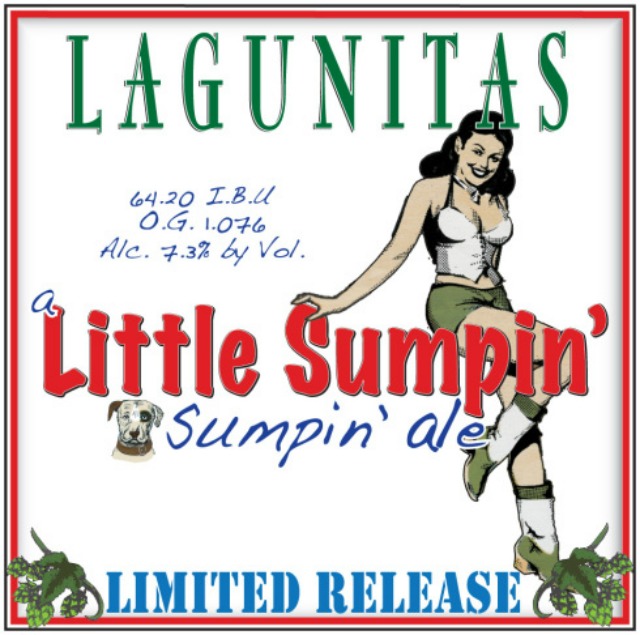Are Beer Labels Sexist?
By Chuck Sudo in Food on Aug 6, 2014 4:00PM

The longtime success of Bud Light, Miller Lite and Coors Light is proof that sex sells when it comes to marketing.
Craft brewers are not immune to it, either.
Quite often a bottle of your favorite IPA, porter, stout or sour may be wrapped in labels whose artwork features impossibly curvy, buxom women in short skirts and seductive poses usually reserved for comic books. This is fitting as both comic book fans and craft beer aficionados share a certain cartoonishly affinity for stylized—some might say "off-putting"—notions of women.

A Google search for “sexist craft beer labels” turns up no shortage of artwork that may turn off female (and some male) drinkers faster than suggesting women drinkers like bright-colored, sweet beers or pretty, girly labels.
Time Out Chicago’s Amy Cavanaugh (a Chicagoist alum) wrote about the sexism in craft beer after seeing the label for Pig Minds Brewing’s “PD,” a California-style ale whose label artwork includes a woman’s legs with her panties around her ankles. Although the Pig Minds team coyly suggests “PD” could mean anything, it’s evident from the label artwork it stands for “panty drop.”
Cavanaugh notes that, even though there are women doing wonderful things on all levels of the local craft beer scene (we recommend reading former Chicagoist writer Lorna Juett’s “Chicago’s Women of Beer” posts as a primer), the sexism and misogyny of the labels could stand in the way of some breweries reaching a wider audience.
But for some reason, these breweries are choosing to alienate a whole group of drinkers who would potentially buy their beer. Do they assume that women aren’t drinking their products and just want to appeal to male drinkers? Are they not even considering the possibility that women might drink beer? Or, are they not even thinking and just think these labels and names are funny?
Some of these labels can be viewed as literal objectification of women, with parts of their bodies being distorted to sell a product. This contributes to the a culture of dehumanization that is detrimental to women.
Blogger Penny S. wrote about her first-hand experiences working in the craft beer industry in response to Cavanaugh.
I’ve worked at breweries, I see what happens to the one female who may well brew beers herself, who may sling bags of malt over her shoulders and shovel out the spent grains right along side of the guys and who invests just as much heart in the process, but at the end of it, she’s still a girl. She still has to listen to the macho dick swinging that goes on whenever craft meets art meets nerd. She may even have a dick to swing of her own (you know what I mean) but in a lot of ways, she is just a woman in a man’s world. She’s the reason we have to have things like the Pink Boots Society, and Barley’s Angels, and ladies nights. Women can’t just show up and jump in yet, we still have to prove that these two lumps under our shirts don’t prevent us from thinking and doing, let alone appreciating and discussing.
Then Penny weighed in on the general tackiness of the labels.
It doesn’t take much to see that beer labels are aimed in a particular direction. A lot of them look like metal band posters, stoner doodles and horror movie ads. As a graphic designer, I care less about the copious t & a and more about the sheer ugliness of the things. The taste level is what we should be talking about, here. Give me a crisp, clean label any day and I will dollars-to-donuts reach for your beer over the one that looks like a Xeroxed flier for that Pig Destroyer show in your buddy’s basement.
There are examples of beer labels featuring women that can be sexy without being sexist. Lagunitas' "A Little Sumpin' Sumpin'" ale is one.

The culture isn’t relegated completely to the breweries. Big Dicks Brewing, a popular brewing collective found at homebrew and small batch beer competitions, has been known to use dildos as tap handles. It’s a fine line between humorous and offensive; one person’s thick skin is another’s easily offended sensibilities.
Cavanaugh ends her editorial by stating, “giving the breweries money for (their beer) is an acknowledgement that this immature, sexist mindset is okay.” It also shows that, while the craft beer scene has come a long way, it still has some evolving in its future. If Cavanaugh is turned off by the labels, you can be certain other women, and men, are, as well. One would think the breweries would want to reach out to women, one of the fastest growing group of beer drinkers, without resorting to marketing that's a cross between Frank Frazetta artwork and frathouse scribbline And while a label shouldn't be the main reason to drink a beer, it should not be what keeps a bottle on the shelf long past its freshness date.